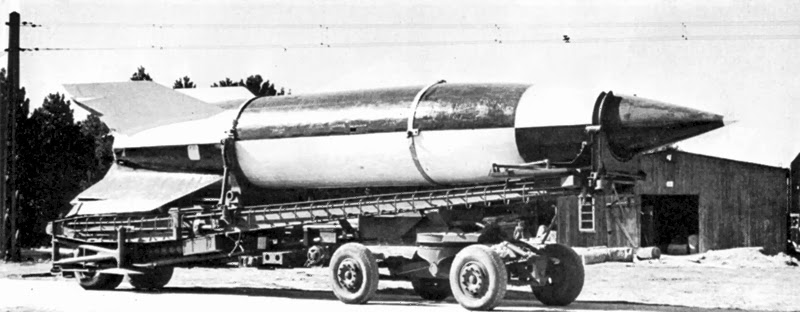 |
| Anglo-Mysore War & the use of rockets (Courtesy: Wikimedia) |
The next major phase of development worth mentioning in
modern rocket technology happened in Germany. Wernher Von Braun, while pursuing
his doctorate at Berlin Technical University was granted funds to experiment on
liquid fuel propellant rockets by the Nazi party which had come to power. Nazi
party was at the time looking to invest in any new technology that could be
weaponised in the anticipation of the impending war. By the end of 1934, Von
Braun was able to successfully test couple of small liquid propellant rockets.
The year 1941 saw the German scientists possessing all the four key
technologies namely large liquid-fuel rocket engines, supersonic aerodynamics,
gyroscopic guidance and rudders in jet control essential to the success of
rockets. After the conclusion of development work in 1943, Hitler ordered the
V-2 rockets to be deployed in the year 1944 against the allied nations. Cities
like London and Antwerp bear the brunt of the damage from the V-2 rockets. It
is estimated that roughly 3000 people died and more than 6000 people got
injured from the V-2 rockets in London alone coupled with huge property
destruction.
 |
| An Assembled German V2 Rocket(Courtesy: Wikimedia ) |
The V-2 rockets faced plenty of problems like low accuracy,
payload issues, dearth of fuel, huge cost of production, etc. After the war
ended, there was a race between USA and Russia to capture the remaining rockets
as well as the scientists and technical staff involved in the development of
the rockets. Some prominent scientist involved in the project surrendered to
the allied nations and later went on to continue their work in their new
adopted countries. So phenomenal was the quality of work done on the
development of V-2 rockets that the research played a pivotal role in all the
future rocket development that were being conducted in multiple countries.
The world never looked back after that. In the following
decades, Long distance rockets(ICBMs) were developed which were capable of
hitting the target anywhere on the planet with deadly precision. On the
constructive side, advance space age technologies like satellite communication,
space exploration, satellite navigation, etc. was all made possible because of
modern rockets (SLVs). The world changed for the better and rockets played
their part in making it possible.
Author: Abhishek
Author: Abhishek












0 comments: